Dear Readers, Whether in bread, on a salad, or simply on their own everyone has probably eaten sunflower seeds at some point.
Sunflower seeds contain a lot of important nutrients and can make a valuable contribution to your health.
However, there are also restrictions: You should not eat the seeds in unlimited quantities. We will tell you the many advantages and disadvantages of the superfood.
Where do sunflower seeds come from?
Sunflowers are arguably one of the most impressive native flowers.
They have been growing in European gardens since the 16th century, initially as ornamental flowers.
Sunflowers can reach a height of up to three meters and produce huge flowers.
The sunflower petals are yellow.
Between them sits a basket of other tiny flowers. From these, the fruits develop sunflower seeds.
The sunflower gets its name from a special ability that it turns towards the sun. During the day the bud follows the course of the sun from east to west, at night it turns back to the east.
Only when the flower is fully developed does the stalk become so firm that it is no longer possible to rotate it. Finally, most of the inflorescences and infructescences face east.
Sunflowers need warmth and light, as well as nutrient-rich and deep soil. Almost 50 million tons of sunflower seeds are harvested worldwide every year.
The main producers are Ukraine, Russia, and Argentina.
There are also various possible uses in the industry: Sunflower oil is used in leather processing and is a component of paints and varnishes. Sunflower oil is also contained in biodiesel.
Depending on the use, there are different types of sunflowers:
- The ornamental type often has several flowers, sometimes in orange or red. These sunflowers are planted in gardens.
- The forage type has a particularly large amount of leaf substance. Silage and green fodder for animals are obtained from them.
- The oil type forms a particularly large number of kernels with a low proportion of shells.
- And with the edible type, the seeds are particularly large and sit loosely in the flower.
Sunflower seeds are so healthy
Sunflower seeds are considered a superfood, and not without reason.
They do a lot for your health and contain numerous nutrients.
These are the nine most important advantages of the delicious kernels.
Protein-rich
Proteins (also called proteins) are one of three basic components of food. The other two are carbohydrates and fats.
Proteins are important for the muscles, cell formation, and blood. The immune system and other important functions of the body also depend on sufficient protein.
Sunflower seeds can make an important contribution here: 100 grams of them contain 19 grams of protein. They can even keep up with very protein-rich meats.
They are therefore an important source of protein, especially for vegetarians and vegans. But athletes also benefit from the vegetable proteins in sunflower seeds.
For blood formation
Iron is important for blood formation. An iron deficiency manifests itself with paleness, tiredness, and exhaustion, among other things.
Many women in particular are affected by iron deficiency.
This is due, among other things, to menstruation and pregnancy.
Vegetarians and vegans must also pay particular attention to their iron intake because iron is mainly found in meat.
But there are also plant products with high iron content.
Sunflower seeds are one of them they contain 5 to 6 mg of iron per 100 grams, which corresponds to about half the daily requirement for men and a third of the daily requirement for women.
Lots of magnesium
If you are prone to calf cramps, you probably know the importance of magnesium.
It helps muscles and nerves and prevents tension and spasms.
Magnesium is also important for electrolyte balance and energy metabolism.
The bones also need sufficient magnesium.
Sunflower seeds contain 350 to 400 mg of magnesium per 100 grams.
This makes them one of the foods richest in magnesium: 100 grams of sunflower seeds completely cover your daily magnesium requirement.
For a youthful look
Vitamin E is considered the best anti-aging agent. It has antioxidant effects, protects against wrinkles, and makes hair shiny and beautiful. It can even have a positive impact on cholesterol levels.
Sunflower seeds are a very good supplier of vitamin E: 100 grams of sunflower seeds contain around 35 mg of vitamin E. That’s twice what you need every day.
For strong bones and teeth
Phosphorus, among other things, is important for stable bones and teeth.
In addition, phosphorus plays a role in the energy metabolism of the cells and is part of the genetic material.
With 100 grams of sunflower seeds, you cover almost your entire daily requirement.
Sunflower seeds also contain a lot of calcium, which is also important for bones and teeth.
Lots of B vitamins
Among other things, B vitamins are important for the nerves and the function of your heart.
Sunflower seeds contain large amounts of various B vitamins B1, B2, B3, B6, B7, and B9 (folic acid) in the small seeds.
For a good mood
Sunflower seeds can have an effect that otherwise only attributes to chocolate: they lighten the mood.
The amino acid L-tryptophan, contained in sunflower seeds (and chocolate), is responsible.
Healthy fatty acids
Unsaturated fatty acids are important for the body. These are the “healthy” fats that we desperately need.
They protect against heart and circulatory diseases and keep the cholesterol level stable. Like most seeds, sunflower seeds contain a lot of unsaturated fats.
However, you should make sure that you also consume enough omega-3 fatty acids (see below).
Important trace elements
Some substances are only found in the smallest amounts in the body but still fulfill important functions. This includes the already mentioned iron. But other trace elements are also found in sunflower seeds.
With 100 grams, you cover two-thirds of your daily requirement for zinc and manganese, and 150 percent for copper.
Disadvantages of sunflower seeds
With all the health benefits that sunflower seeds bring, you should not consume them indefinitely.
They do have some disadvantages though.
Sunflower seeds are high in calories
With about 550 calories per 100 grams, sunflower seeds are not exactly good for a slim line.
In terms of calories, sunflower seeds are in a league with chocolate and chips.
If you want to lose excess weight, for example with a healthy diet, you should only use it sparingly. They are not really suitable for a quick decrease.
A lot of unsaturated fatty acids
We have already mentioned that sunflower seeds contain a lot of healthy fats.
However, this benefit can also be reversed if you eat too many sunflower seeds. The seeds primarily contain omega-6 fatty acids.
These are healthy but should be in good balance with omega-3 fatty acids.
If you eat too many sunflower seeds permanently but do not pay attention to foods with omega-3 fatty acids, the balance is not right.
This can lead to inflammation in the body. Nevertheless, the advantages of sunflower seeds outweigh the disadvantages. However, you should not nibble on them indefinitely.
Too much salt in roasted sunflower seeds
Many people love roasted and salted sunflower seeds. This is still significantly healthier than other snacks such as chips etc.
Nevertheless, roasted sunflower seeds are often very salty, and that’s not healthy.
Store sunflower seeds correctly
Like all seeds, sunflower seeds are sensitive to moisture and sunlight.
If they get wet, they can mold or sprout. When exposed to sunlight, the oil contained in the kernels quickly becomes rancid.
That’s why it’s best to keep the seeds dry and dark.
In addition, the container should be tightly closed, because vermin also like the rich kernels very much.
For example, metal cans or screw-top jars that you store inside a cupboard are very suitable. Sunflower seeds can easily be stored for a year or more under these conditions.
If you notice a rancid or musty taste, stop consuming the seeds.
Buy sunflower seeds: peeled and unpeeled
However, not all of the products offered here really come from nearby.
So pay attention to the information on the packaging.
There is no fixed season for sunflower seeds. You can get them all year round without noticeable price fluctuations.
Compared to other nuts and seeds, sunflower seeds are relatively cheap, even if you choose organic quality.
Sunflower seeds are usually offered shelled, but you can also buy unshelled ones and crack them yourself. With a bit of practice, this is easy to do with your fingernails or front teeth.
Roast sunflower seeds
Roasted sunflower seeds are a delicious snack because they intensify the taste even more.
For the simplest version, simply roast the seeds in a coated pan without fat.
Watch the sunflower seeds as they roast and take them off the heat as soon as they turn light golden brown.
If you want even more flavor in your roasted sunflower seeds, you can mix them with soy sauce after roasting.
You need about 50 ml of soy sauce for 250 g of sunflower seeds. Thoroughly stir the seeds and sauce in a bowl until the seeds have dried.
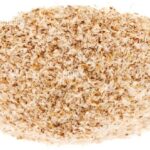

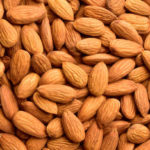


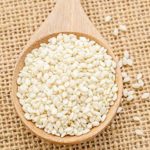





Leave a Reply